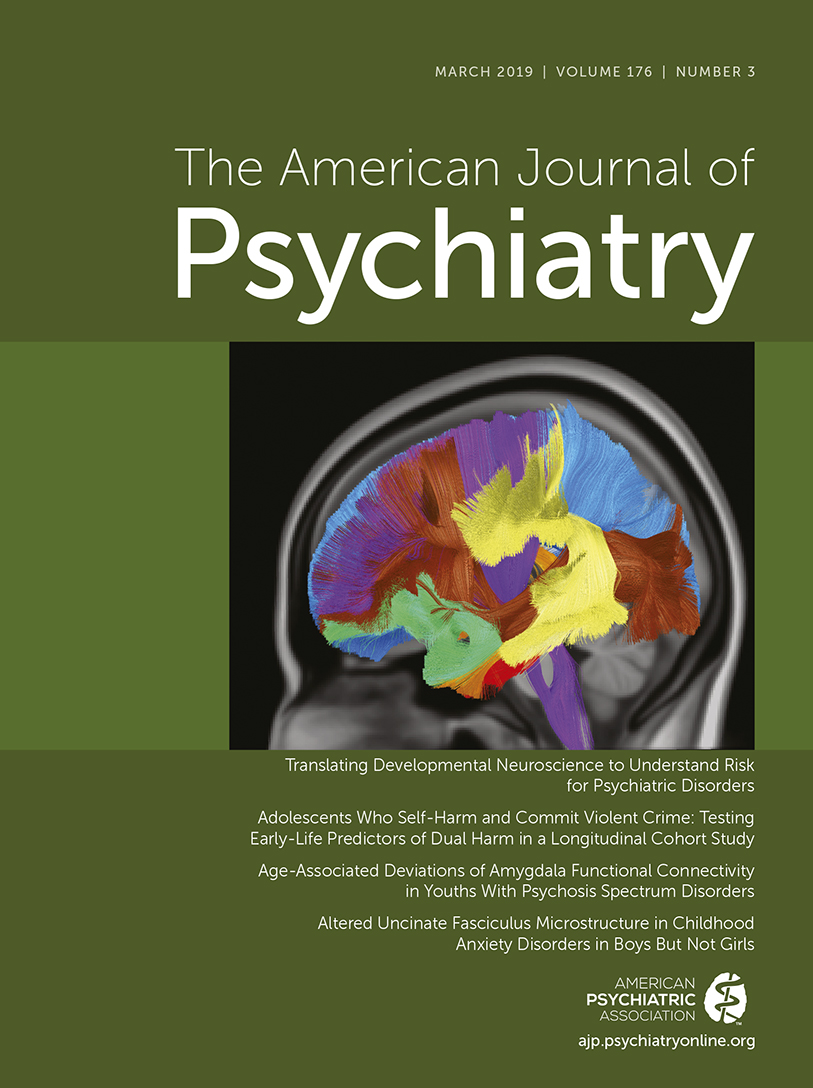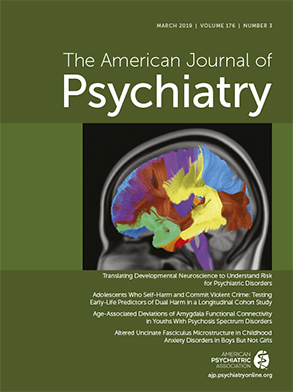T
o the E
ditor: We thank Dr. Sanacora for his thoughtful comments on our recent article (
1), in which we reported that pretreatment with naltrexone, an opioid receptor antagonist, markedly attenuated the rapid antidepressant response to ketamine in patients with treatment-resistant depression. His letter raises an important alternative interpretation of the study’s findings; namely, that the results may reflect the need for a normally functioning endogenous opioid system to express an antidepressant response to ketamine. This possibility has two implications: first, ketamine’s antidepressant mechanism may require endogenous opioid release; second, perhaps the endogenous opioid system is a final common pathway for many antidepressant effects, including placebo.
Our study was a first attempt at exploring the pharmacological mechanism of ketamine’s antidepressant effect in humans. We broadly agree with Dr. Sanacora that an opioid receptor antagonist’s effect can be explained either by direct interaction at the opioid receptor, an indirect interaction at the cellular level, perhaps mediated by cross-talk between
N-methyl-
d-aspartate and opioid receptors, or by an indirect effect wherein the action of endogenous opioids, presumably stimulated by ketamine infusion, is blocked. As we stated in our article, “opioid receptors are necessary for ketamine’s acute antidepressant effect” (
1, p. 1210), and “ketamine produces its acute antidepressant response primarily through direct and/or indirect actions at the mu opioid receptors” (
1, p. 1210). Our results cannot distinguish between a direct or indirect mechanism of ketamine on the opioid system. The available preclinical evidence, cited in our article, shows that ketamine can bind opioid receptors, which would be the simplest interpretation of the study’s findings. We acknowledged other potential mechanisms in our article, and we agree that endogenous opioid release may play an important role in ketamine’s antidepressant response.
Could endogenous opioid mechanisms explain antidepressant responses to many active agents, including ketamine, as well as to placebo? We cannot discount this possibility. However, we know of no other evidence that naltrexone blocks or reverses antidepressant responses or the efficacy of antidepressants in other conditions, such as appetitive behaviors. To the contrary, sertraline in combination with naltrexone produces greater antidepressant effects in depressed alcoholic patients than does naltrexone alone, sertraline alone, or placebo alone (
2). In that study, placebo response was similar in the sertraline and naltrexone groups. In another trial of bupropion plus naltrexone compared with placebo for weight loss (
3), the effect in the bupropion/naltrexone–treated group on weight loss was significantly greater than that seen with placebo, and the bupropion/naltrexone subjects did not show greater rates of depression. Similarly, in another study, bupropion/naltrexone was significantly more effective than bupropion/placebo for smoking cessation (
4). Thus, it seems unlikely that naltrexone generally blocks the effect of antidepressant treatments, whether in trials measuring efficacy for depression, or for other symptoms or behaviors, including those associated with dysregulated appetitive behaviors.
We support Dr. Sanacora’s comment on being careful not to overinterpret the mechanistic implications of our findings. At the same time, we remain steadfast in our conclusion that caution against widespread and repeated use of ketamine is warranted. The epidemiological evidence speaks for itself; ketamine can be highly reinforcing, lends itself to abuse, and may result in significant adverse medical and behavioral sequelae. We believe that our findings suggest an explanation for ketamine’s abuse potential and bring attention to this aspect of ketamine’s use as an antidepressant treatment that has, so far, been underappreciated in the psychiatric literature. We support Dr. Sanacora’s suggestion of a registry for outpatient ketamine administration.

